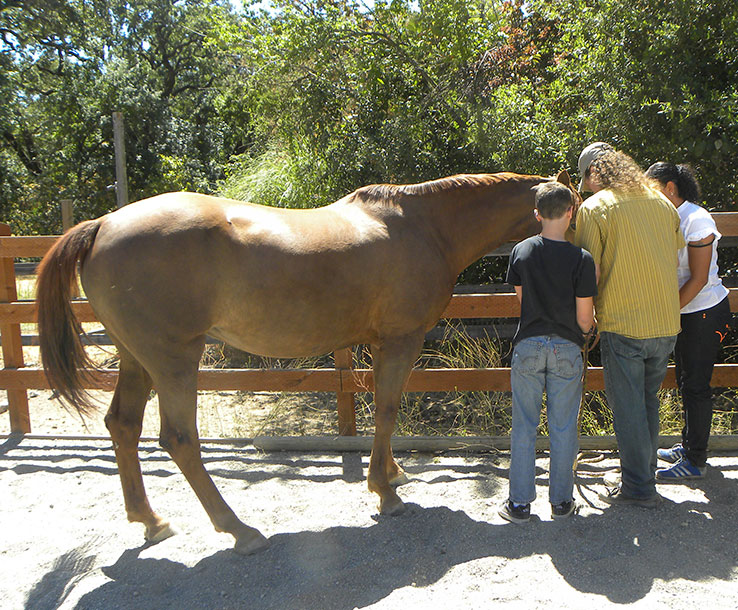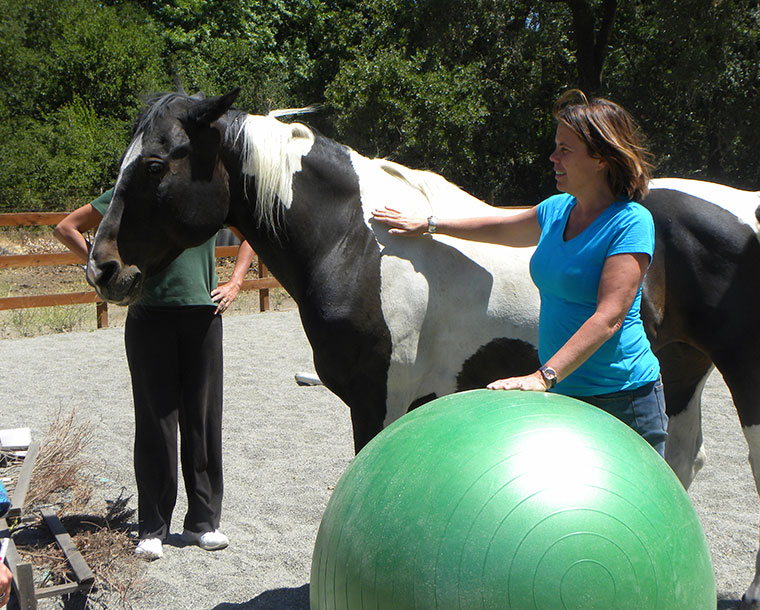Reconnection
Families that we serve have experienced a severe crisis, challenge or conflict through abduction of a family member or another trauma. This includes both familial and non-familial abduction. The intensive reconnection experience that we want to offer families is to provide and assist the family in developing a sense of mastery. The world of each family member has been turned upside down by the abduction. It is time to bring the family together to identify and label survival and coping skills, and to begin the healing process. This can be done through formal individual and family therapy or through experiential activities such as preparing meals together, during the course of animal therapy, through a hike or a ropes course. The first task of the reconnection process is to evaluate how to manage the immediate crisis. Case management regarding specific immediate needs of each case can include short-term solution focused individual and family therapy when appropriate. Possible interventions are identified, considered, and described with known risks and benefits for each, as well as the risks and benefits of no intervention. The family members are made aware of the recommendations.
A Sample Set of Goals and Objectives for Reconnection
- Strengthen existing familial relationships to promote and support the development of compassion and communication skills.
- Strengthen empowerment of the family in the face of external interference from external forces.
- Encourage and foster a working relationship for the entire family by promoting a balanced perspective and becoming an inclusive solution focused unit.
- Assist families in identifying and beginning to untangle challenges encountered in the family dynamics before, during, and after the abduction.
- Assist the family in identifying and putting in place resources that will be available to them in the long term, including medical services, education, mental health services, and a media consultant if needed.
- Each family sets the tone for the reconnection work as long as it stays focused on common themes for all family members. Ultimately we want to be able to transition the family back into their community with the tools and resources that they will need.
Crisis creates vulnerability. Every effort is made to empower the family to make their own decisions and to create options for them to select. These choices are a crucial part of the treatment regardless of the stage of the reconnection process. The interventions and activities chosen for each family allow for options in the depth of insightful interpretations made by the families.
“Empower the family to make their own decisions”


Military Families
In the work with military families the goals and objectives are similar, keeping in mind that the returning veterans have invisible psychological and/or neurological wounds. The recognition of and the treatment for combat PTSD is becoming more common and more accepted by various government and private agencies, including many non-profit entities. Not unlike the returning abducted child, the veteran can be faced with a family that has changed a great deal in the ensuing time and who have suffered their own trauma. Families of veterans may also be recovering from a PTSD related suicide.
We provide interventions whereby the entire family can reconnect. We focus on supporting resiliency, and on developing coping skills, communication and empathy. If we can facilitate stronger understanding within the family, the veteran will better be able to meet the challenges he will have in transitioning from the military to civilian life.
The following is a video that will help you understand some of what our Reconnection program encompasses.
